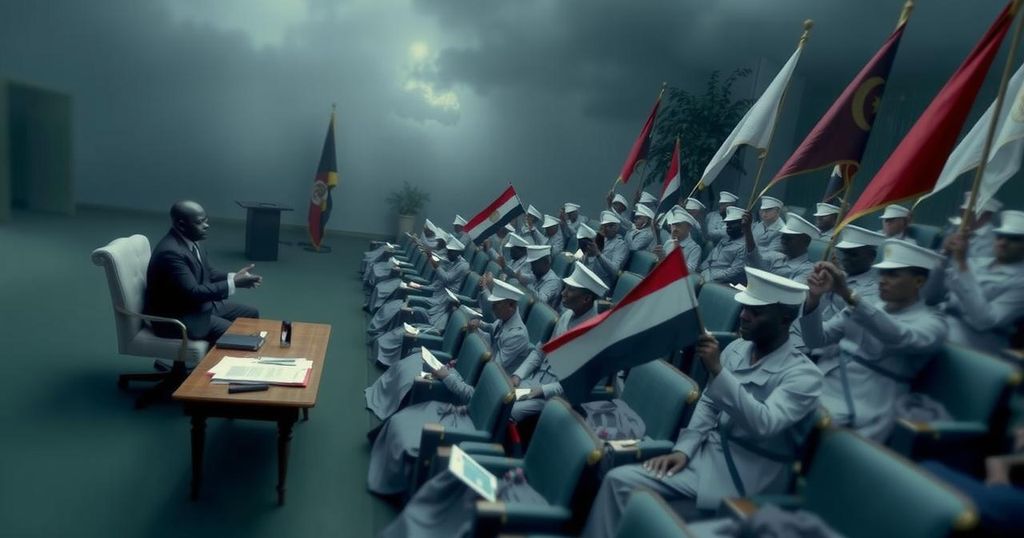Russia has vetoed a UK-backed UN Security Council resolution aiming for a ceasefire in Sudan, eliciting strong condemnation from Western nations. The conflict has resulted in tens of thousands of deaths and millions displaced. The resolution sought to halt hostilities and protect civilians, but Russia claimed it violated Sudanese sovereignty. Activists criticize the UN for inadequate action amidst the escalating humanitarian crisis.
In a recent turn of events regarding the civil war in Sudan, Russia exercised its veto power over a United Kingdom-backed resolution at the United Nations Security Council that sought to establish a ceasefire. This action has drawn sharp criticism from Western nations, particularly the United Kingdom and the United States. British Foreign Secretary David Lammy described the veto as “a disgrace,” while U.S. Ambassador Linda Thomas-Greenfield accused Russia of obstructing vital efforts to alleviate the dire humanitarian crisis in Sudan. Activists have voiced frustration with the UN’s perceived inaction amidst escalating violence that has resulted in severe human rights violations and widespread displacement. The proposal, which was co-sponsored by Sierra Leone, urged conflicting parties to halt hostilities and engage in meaningful negotiations toward securing peace. The resolution highlighted the need for protection of civilians, calling out the Rapid Support Forces (RSF) for their conduct, especially in the conflict-ridden region of Darfur. However, Sudan’s representative asserted that the resolution lacked essential inclusions that the government deemed necessary. In response to the veto, Russia’s envoy to the UN characterized the resolution as interference in Sudanese sovereignty and accused the UK of exploiting the situation for its own geopolitical objectives. This confrontation marks a significant moment in international diplomacy, underscoring the complexities surrounding the Sudanese conflict and the competing interests of global powers. As the situation develops, the humanitarian crisis continues to represent a pressing challenge for both the region and the international community.
The ongoing civil war in Sudan, which commenced in April 2021, pits the Sudanese Armed Forces against the Rapid Support Forces (RSF), a powerful paramilitary group. This conflict has led to profound humanitarian crises, exacerbating conditions in which millions have been displaced and many face famine. The UN Security Council, responsible for maintaining international peace and security, has faced criticism for its responses to the conflict, particularly concerning the urgency and effectiveness of its actions. The geopolitical dynamics surrounding the conflict include various nations’ interests, with the United States and the United Kingdom advocating for a resolution to the crisis, while Russia has positioned itself against perceived Western interference.
In conclusion, the veto by Russia at the UN Security Council highlights the complexities of international relations as they pertain to the Sudanese conflict. The UK and US condemn Russia’s actions as detrimental to ceasefire efforts, while Russia argues for respect of Sudan’s sovereignty. As humanitarian conditions worsen, the need for an effective and diplomatic resolution becomes increasingly urgent, underscoring the intertwined nature of global politics and humanitarian crises.
Original Source: www.bbc.co.uk






